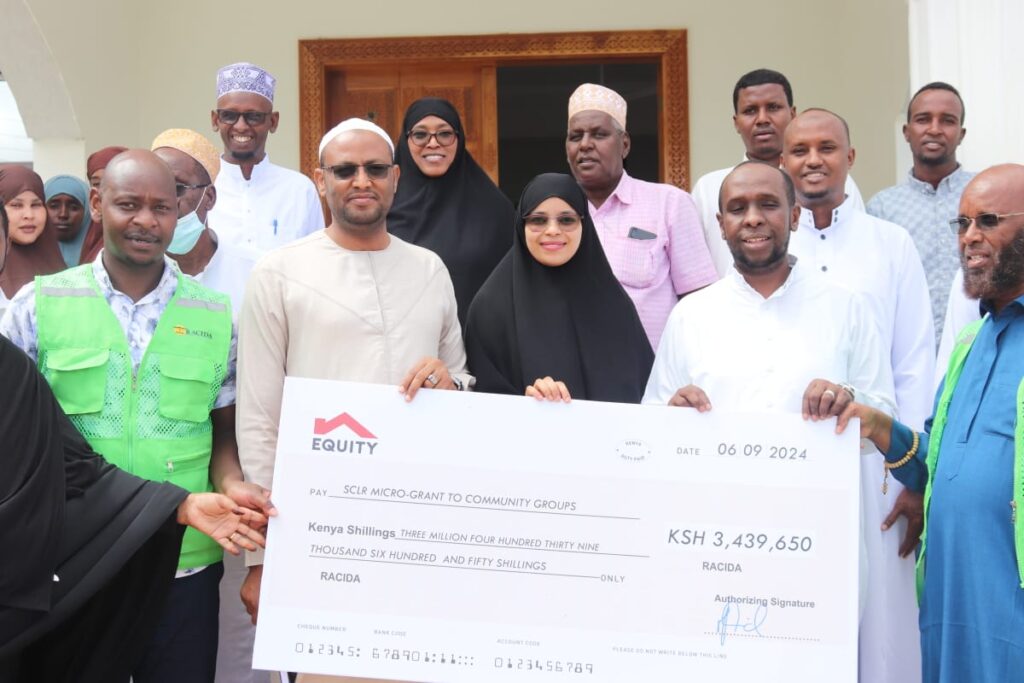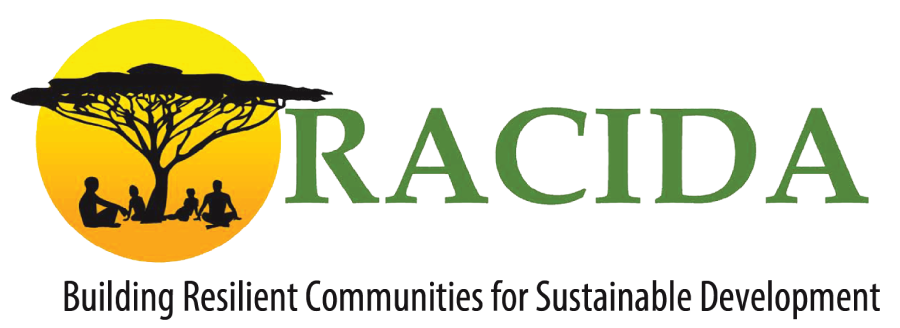BY AHMED HUSSEIN

In a move set to transform crisis-affected communities in Mandera County, RACIDA has launched micro-grants totaling Ksh 3,439,650, aimed at supporting eight community groups. These grants, provided through the Support Community-Led Response (SCLR) approach, represent a vital step towards empowering local groups to take control of their futures, build resilience, and address the root causes of vulnerability.
The micro-grants, launched in collaboration with the County Government of Mandera, are designed to enable community groups to initiate locally driven solutions. This approach is part of a broader strategy to foster sustainable recovery and strengthen the long-term resilience of communities facing the dual challenges of climate change and conflict.
Speaking during the launch event, Mr. Adan Dakane, the County Executive Committee (CEC) for Trade and Cooperatives, emphasized the significance of this initiative for the people of Mandera.
“This launch marks a turning point for the communities of Mandera. By empowering them to lead their own recovery efforts, we are ensuring that solutions are not only sustainable but also rooted in local knowledge and experience,” Mr. Dakane said.
He further lauded the ongoing partnership between the county and RACIDA, adding, “We thank RACIDA for this initiative and for the continued support they provide in improving livelihoods and promoting resilience in Mandera County.”
The grants have been awarded to community groups in Mandera North, Mandera East, and Banisa sub-counties. These groups were selected based on their proactive efforts in responding to crises, their commitment to helping others, and their dedication to strengthening communal well-being. Through the micro-grants, they will develop and implement initiatives ranging from disaster risk reduction and peacebuilding to sustainable livelihood programs.
RACIDA’s Program Coordinator Fred Ogeto highlighted the importance of giving communities the resources to drive their own recovery efforts. “At RACIDA, we believe that the communities themselves are best placed to understand and address their challenges. This micro-grant program gives them the resources to do so while fostering long-term resilience,” the Program Coordinator stated, reinforcing RACIDA’s belief in the power of locally led solutions.
The micro-grants are part of the broader Building Resilience of Agro-Pastoralist Communities (BRAP) project, which aims to support 30,000 beneficiaries across Banisa, Mandera East, and Mandera North. This project, running from November 2022 to December 2024, focuses on livelihood development, resilience building, and Water, Sanitation, and Hygiene (WASH) interventions. By supporting these community groups, the project seeks to strengthen local initiatives that address both immediate needs and the long-term risks posed by disasters and conflicts.
For the beneficiaries, this launch is a beacon of hope. “This grant gives us the opportunity to take charge of our future. We now have the means to strengthen our livelihoods and support our families, and for that, we are deeply grateful,” said community group leader, expressing the relief and optimism shared by many present at the event.
The SCLR approach, which underpins this initiative, is guided by the principle that communities are the first and last responders to crises. By trusting and enabling local people to act on their own behalf, the project seeks to create stronger, more self-reliant communities that can respond holistically to both immediate crises and long-term vulnerabilities. The process of awarding the grants has involved comprehensive training for RACIDA staff, community mobilization, proposal development, and validation by community members themselves, ensuring that the solutions supported are those most needed on the ground.
Mr. Dakane captured the broader vision of the micro-grants, saying, “Through this collaboration with RACIDA, we are building a future where our communities can respond to crises more effectively and independently, with the resilience to withstand future challenges.” His words echoed the central theme of the initiative—community empowerment through local leadership and innovation.
With the support of funding partners German Federal Ministry for Economic Cooperation and Development, Diakonie Katastrophenhilfe, and Brot für die Welt, the micro-grants have set the stage for a new chapter in Mandera County, where communities are equipped not only to survive crises but to thrive in the face of adversity. Through this collaboration, RACIDA continues to make strides in transforming lives, strengthening resilience, and building hope for the future in some of the most challenging environments.
